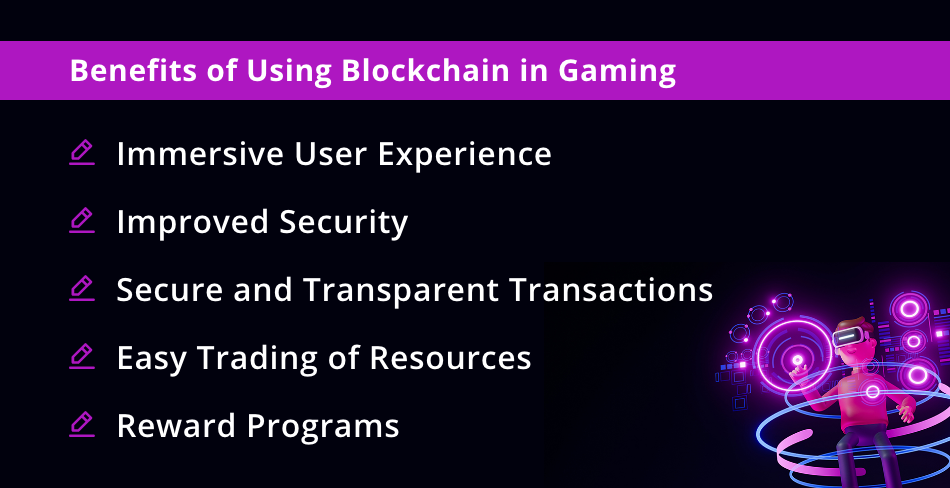BD Help Zone
Your go-to source for insightful news and information.
Level Up: How Crypto Gaming Innovation is Transforming Entertainment
Discover how crypto gaming is revolutionizing entertainment! Dive into innovations that are changing the way we play and earn.
The Future of Gaming: How Blockchain is Shaping Interactive Entertainment
The future of gaming is being significantly influenced by blockchain technology. As blockchain continues to evolve, it offers unique advantages that are transforming the landscape of interactive entertainment. One major impact is the rise of decentralized gaming platforms that enable players to own in-game assets. Unlike traditional models where game items are often locked to a specific game or platform, blockchain allows for true ownership through non-fungible tokens (NFTs). This innovation not only empowers players but also creates a new economy within games, where assets can be traded or sold independently.
Moreover, blockchain enhances the transparency and security of gaming transactions. With a decentralized ledger, players can trust that their in-game purchases are safe and that they have genuine ownership of their digital assets. Smart contracts further automate processes within games, ensuring that rules are enforced consistently and fairly. As developers adopt this technology, we will likely see an increase in community-driven games, where players have a direct say in game development and governance, paving the way for a more inclusive future in interactive entertainment.

Counter-Strike is a popular tactical first-person shooter game that has captivated millions of players around the world. Teams of terrorists and counter-terrorists compete in various objective-based game modes, making strategy and teamwork essential for success. For players looking to enhance their gameplay experience, they can use the winz.io promo code for some exciting offers.
Exploring Play-to-Earn: The Economic Impact of Crypto Gaming on Players
The emergence of Play-to-Earn games has revolutionized traditional gaming by allowing players to earn real economic value through their in-game activities. Unlike conventional gaming models, where players invest time and money without tangible returns, these new platforms integrate blockchain technology to create a decentralized economy. Players can earn cryptocurrency or digital assets that hold real-world value, thereby fostering a sense of ownership and financial incentive that was previously absent. This shift not only enhances player engagement but also creates new opportunities for income, particularly in developing regions where job prospects may be limited.
The economic impact of crypto gaming is profound and multifaceted. As players participate in these ecosystems, they contribute to the growth of digital economies, often leading to increased market capitalization for the games themselves. Additionally, decentralized finance (DeFi) integrations within these platforms can provide players with unprecedented financial tools, such as trading, lending, and staking options. For many, the ability to convert in-game earnings to fiat currency offers financial freedom and a new avenue for wealth generation, drastically changing the landscape of both gaming and economic participation in the digital age.
What Makes Crypto Gaming Different? A Guide to Blockchain-based Game Mechanics
The rise of crypto gaming has revolutionized the way players interact with virtual environments, combining traditional gaming with the innovative capabilities of blockchain technology. Unlike conventional games, blockchain-based games utilize decentralized systems to give players true ownership of in-game assets, which can be traded or even sold on various marketplaces. This shift towards player ownership not only enhances the gaming experience but also allows for new economic models, where players can earn cryptocurrency through gameplay, fostering a vibrant community of gamers and creators alike.
One of the distinguishing features of blockchain-based game mechanics is the implementation of non-fungible tokens (NFTs). These unique digital assets enable players to own, buy, and sell in-game items that possess real-world value. Additionally, the transparency and security provided by blockchain ensure that all transactions are verifiable and tamper-proof. As games increasingly incorporate elements such as play-to-earn models and decentralized finance (DeFi), the potential for crypto gaming to disrupt the entertainment industry becomes increasingly apparent, paving the way for a new era of immersive and rewarding gameplay.